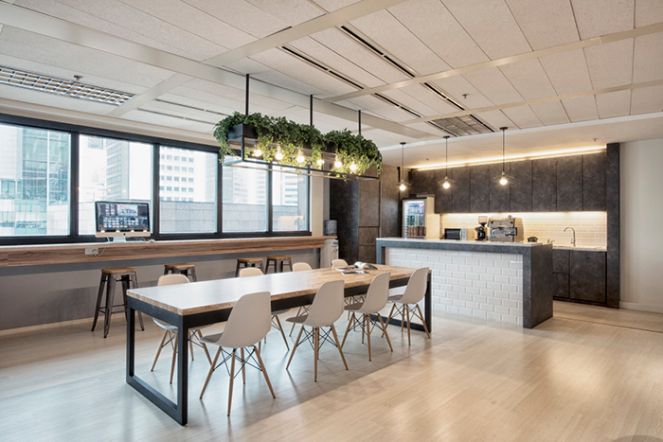What of the office are employees most excited about? Definitely, it is not their own cubicles or the meeting room. They feel most comfortable in the pantry or the office kitchen. A working office kitchen is like a gift to employees. If you allow them enough time to use the kitchen as their own, then there will be more collaboration, partnership, and teamwork developed there.
But it can’t also be helped that there are some problems in the office kitchen when employees start to use them together. Some are messy and leave the plates unwashed. Others are too tidy that a speck of dust on the countertop sends them into fits of anger. Then, there are those who eat other people’s food that is already clearly labeled as theirs alone.
Here now lies the problem: how can employers make sure that their employees will not fight over kitchen tools and space? Who is going to keep the office kitchen clean and organized? Who is going to be responsible for that?
A Sense of Ownership
Encourage your employees to have a sense of ownership of the shared space. They should treat the office kitchen like their own. In fact, you can invite them to bring over their favorite home kitchen accessories so they will feel like they are truly a part of the kitchen. If they start to see some of their personal stuff in the kitchen, they will take better care of the space.
Clean as You Go
Who is going to clean the office kitchen? Are you going to hire a cleaner for that, or are your employees responsible for keeping it clean and organized? If you are going for the latter, then make sure this is explicitly indicated in the official rules.
Make sure everyone understands that they are not being bullied into doing something beyond their usual tasks; rather, it is a shared responsibility of everyone to clean as they go. If they use the kitchen to cook or eat or make coffee, then they are old and should be responsible enough to clean afterward. That shows respect for those who will use the space later.
Light It Up
The home and office kitchen should have good lighting. That will not only prevent accidental cuts when one is chopping, but it will also bring good vibes into the kitchen. Remember that the kitchen—whether at home or in the office—is a place where people congregate. Here, they share experiences, exchange ideas, and debate about a myriad of topics. It should be bathed in light so opt for a space with access to windows or at the least, install ambient lighting sources such as under-cabinet lights and spotlighting.
Remember that areas in the office tend to be gloomy during the colder months. Employees usually suffer from seasonal depression during winter, so it is critical for every office kitchen to help improve their moods. Don’t forget to install brighter lights in the main dining area.
Manage Expectations
Unfortunately, no matter how much you try to set ground rules in the office kitchen, not all your employees will be amenable to these. See to it that there is a consequence for those who repeatedly make the same mistakes—eat someone else’s food, leave dirty dishes in the sink, empty the coffee maker, and many more. Respects beget respects. This is a rule intended not only for the office kitchen but for the whole workplace.
Show your employees that you are serious about making sure they follow basic etiquette. There should be no place in the kitchen for people who do not care for others. If they repeatedly disrespect their peers, then call their attention to it.
Unfortunately, you cannot expect your employees to follow all the rules you set for the office kitchen. That is why although you cannot be overbearing (because that might push them away), you should also be firm in your resolve that respect is the golden rule in the workplace. When everyone knows how to respect one another, misunderstandings and office arguments will be easier to manage.
Have you ever been in an office kitchen just to hang out with your employees and colleagues? It’s a safe space for everyone. There, they are more than just workmates; they are friends. They spend their time sharing stories about their families and even planning what to do on weekends. It is the most important space in your office because it provides opportunities for camaraderie, teamwork, and cooperation.

